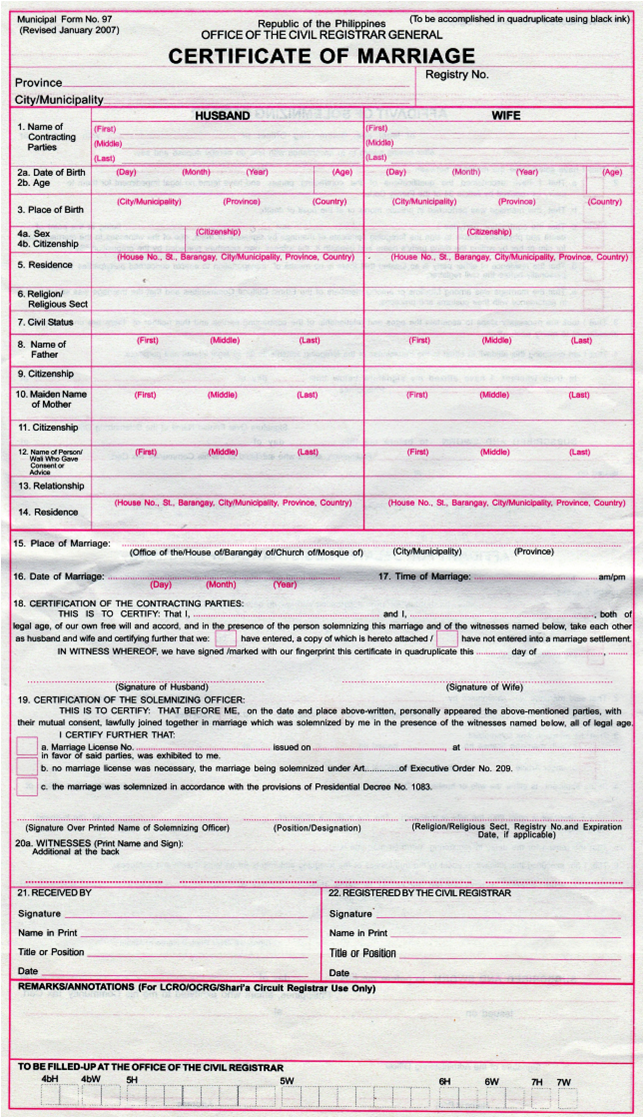Case Digest for Articles 143-146: Carino v. Carino G.R. No. 132529, 2 February 2001
SUSAN NICDAO CARIÑO, petitioner, v. SUSAN YEE CARIÑO, respondent.
G.R. No. 132529, 2
February 2001
Facts:
In 1969 SPO4
Santiago Cariño married Susan Nicdao Cariño. He had 2 children with
her. In 1992, SPO4 contracted a second marriage, this time with Susan
Yee Cariño. In 1988, prior to his second marriage, SPO4 is already
bedridden and he was under the care of Yee. In 1992, he died 13 days
after his marriage with Yee. Thereafter, the spouses went on to claim
the benefits of SPO4. Nicdao was able to claim a total of P140,000.00
while Yee was able to collect a total of P21,000.00. In 1993, Yee
filed an action for collection of sum of money against Nicdao. She
wanted to have half of the P140k. Yee admitted that her marriage with
SPO4 was solemnized during the subsistence of the marriage b/n SPO4
and Nicdao but the said marriage between Nicdao and SPO4 is null and
void due to the absence of a valid marriage license as certified by
the local civil registrar. Yee also claimed that she only found out
about the previous marriage on SPO4’s funeral.
Issue:
Whether or not the
absolute nullity of marriage may be invoked to claim presumptive
legitimes.
Held:
The marriage between
Nicdao and SPO4 is null and void due the absence of a valid marriage
license. The marriage between Yee and SPO4 is likewise null and void
for the same has been solemnized without the judicial declaration of
the nullity of the marriage between Nicdao and SPO4. Under Article 40
of the FC, the absolute nullity of a previous marriage may be invoked
for purposes of remarriage on the basis solely of a final judgment
declaring such previous marriage void. Meaning, where the absolute
nullity of a previous marriage is sought to be invoked for purposes
of contracting a second marriage, the sole basis acceptable in law,
for said projected marriage to be free from legal infirmity, is a
final judgment declaring the previous marriage void. However, for
purposes other than remarriage, no judicial action is necessary to
declare a marriage an absolute nullity. For other purposes, such as
but not limited to the determination of heirship, legitimacy or
illegitimacy of a child, settlement of estate, dissolution of
property regime, or a criminal case for that matter, the court may
pass upon the validity of marriage even after the death of the
parties thereto, and even in a suit not directly instituted to
question the validity of said marriage, so long as it is essential to
the determination of the case. In such instances, evidence must be
adduced, testimonial or documentary, to prove the existence of
grounds rendering such a previous marriage an absolute nullity.
These need not be limited solely to an earlier final judgment of a
court declaring such previous marriage void.
The SC ruled that
Yee has no right to the benefits earned by SPO4 as a policeman for
their marriage is void due to bigamy; she is only entitled to
properties, money etc owned by them in common in proportion to their
respective contributions. Wages and salaries earned by each party
shall belong to him or her exclusively (Art. 148 of FC). Nicdao is
entitled to the full benefits earned by SPO4 as a cop even if their
marriage is likewise void. This is because the two were capacitated
to marry each other for there were no impediments but their marriage
was void due to the lack of a marriage license; in their situation,
their property relations is governed by Art 147 of the FC which
provides that everything they earned during their cohabitation is
presumed to have been equally contributed by each party – this
includes salaries and wages earned by each party notwithstanding the
fact that the other may not have contributed at all.

Comments
Post a Comment